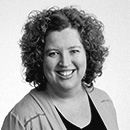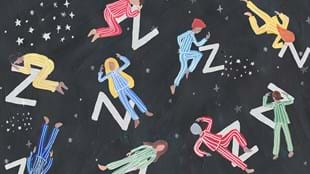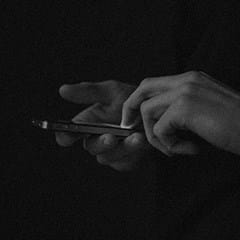It’s now increasingly evident that our modern ideas about sleep were not shared by our ancestors. Fretting about getting the requisite eight hours may well be a symptom of the technological age in which we live, not something our bodies naturally demand or crave.
This was recently highlighted by the historian Roger Ekirch whose research uncovered hundreds of historical references to segmented sleeping patterns, in diaries, court records, medical books and literature. He argued that before cheap electricity, people would commonly go to bed early and get up in the middle of the night, do a few chores, maybe have sex, then go back to sleep.
Might we be worrying too much about how much sleep we don’t get? We went to sleep expert Dr Siobhan Banks to find out.
It’s been suggested that the idea of a solid eight-hour sleep is a thoroughly modern invention. Do you agree?
It makes sense. The nights were long before we had a reliable cheap lighting source and what else were you going to do but go to sleep? It would have also been a way to conserve heat. That would have had a lot to do with the social constraints of the time, but what’s nice about that particular narrative for us is that it helps people to understand that it’s alright to wake up in the middle of the night. There is this idea that we should go to sleep, and shouldn’t have any conscious knowledge of being awake through the night, but we generally do wake up periodically. If you’re lucky you can roll over and go straight back to sleep, and for others it might take a little bit longer. Often that’s age related – unfortunately the older you are the more difficult it is getting back to sleep.
So we don’t need to panic so much about waking up in the middle of the night?
Exactly, and not panicking means it’s easier to get back to sleep. So is understanding that while feeling a bit sleepy the next day might not be ideal, it’s not catastrophic. For most of the time it’s okay.
Is there any consensus on how much sleep we need?
There have been some consensus statements put out by the National Sleep Foundation in the US, and how that changes across a lifespan. But as it’s a consensus statement those numbers are really broad. Some teens may only need seven hours, but others need nine or ten. For adults, somewhere between seven to eight is probably ideal, but some can get away with six hours and some might need up to nine.
You want to aim for consistent sleep – if you’re on the seven or six hour end, it’s probably okay as long as it’s consistent. It’s when you’re dropping down to four or five hours on a regular basis that it might not be enough. And what people then tend to do is catch up by sleeping in, but missing that morning signal of bright light can throw out your whole circadian rhythm.
When does a bad sleeper become an insomniac?
There are specific definitions about different types of insomnia, and there are many different types, but the short answer is that it’s more than a transitory problem. People often develop a period of insomnia, which might be associated with a life crisis, or a death in the family, but that will often resolve itself. It’s more a problem if people are having trouble falling asleep or staying asleep and feeling very anxious about it, and that goes on for a long period of time.
Insomnia often goes hand in hand with anxiety and depression, so helping with insomnia will sometimes help with depression and vice versa. Those are problems that people will often have clustered together, and psychologists will try to address them together.
“A long-term lack of sleep sets you up biologically for weight gain. Your hormones are disrupted, and you’re not metabolizing glucose as efficiently as you might.”
– Dr Siobhan Banks
All those headlines about how lack of sleep is making us fat, and possibly killing us, can get in the way of a good night’s sleep.
Yeah, they might be compelling for getting sleep research funding, but terrible for people who suffer anxiety around sleep. But it is true that a long-term lack of sleep sets you up biologically for weight gain. Your hormones are disrupted, and you’re not metabolizing glucose as efficiently as you might, or your meals as efficiently as you might. On top of that if you’re sleep deprived you’re more inclined to crave sugary fatty foods. I think it’s that comfort thing; ‘I’ve been awake all night, I deserve that chocolate’. But in general, at least for adults, it’s only after many years of sleep deprivation that we’ll start seeing chronic effects.
Is napping a good idea or not?
It really depends on what stage of life you’re at, and how sleep-deprived you are. If you’re an older person, who isn’t too worried about sleeping through the night, then having a sleep in the afternoon is kind of like splitting your sleep, like we were talking about earlier. But if you’re talking about teens, naps are not ideal, because a nap can keep them up at night and then they won’t be able to get up when they need to. If you’re a mum like me, with two small kids, taking a nap on a Sunday afternoon is the most glorious thing. I definitely take that half an hour if I can.
Are we getting carried away, in our concerns about whether we are/aren’t getting enough sleep?
It’s good that we’re beginning to understand more about sleep, and there’s a lot we don’t know. But people can become obsessed about sleep and they don’t need to be that anxious about it. I used to be “I’m an eight hour sleeper, I need my eight hours” but once you have kids you realize that’s just not possible, and you’ll be okay. You might not be as on the ball as you were five years ago, but you manage.
There’s been a bit of a vogue for apps and other systems than we can use to monitor our sleep. Are they useful?
We use technology in the lab to keep track of sleep/wake behavior, but that technology has been validated, by research. Technologies that you can just download onto your phone or whatever, haven’t undergone the same validation; they could be over-estimating your sleep, or underestimating it, we just don’t know. I’d think of them as something that you can have fun with, rather than as a true indicator of your sleep.
But why would you want to monitor your sleep anyway? It’s only going to make you more anxious and it’s sometimes better not to know. Sometimes you might have had only five hours sleep and wake up feeling fine and another day you’ll have seven hours and wake up feeling drained. The last thing you want to do, if you’re not sleeping well, is to add an extra layer of anxiety by monitoring your sleep.
Why, if you do wake in the middle of the night, do we end up ruminating on, say, how you haven’t saved for your retirement and that really bad wedding speech you gave ten years ago?
Often the reason those thoughts come into you in the middle of the night is because you’re not doing anything else – you’re not dropping the kids off to school, or you’re not driving. So thoughts might come momentarily into your brain during the day, but as if you’ve got other things to and think about you don’t think about them for long. Sleep psychologists have techniques on how to deal with all of those, often involving things like meditation and other techniques.
Best recommendations for a good night’s sleep?
Give yourself time to wind down – we give kids signals so they know it’s time to go to bed and as adults, we need to do the same. So give yourself time to get ready for bed, maybe read a bit. If you’re someone who is having trouble sleeping, don’t have coffee or any caffeine after lunch. Make sure your bedroom is cool, dark and quiet. Don’t drink too much. Alcohol does help with going to sleep, but the problem is that when the alcohol is being metabolized it raises your body temperature, which interrupts with the natural sleep process. Part of a hangover is sleep deprivation.

Dr Siobhan Banks is Associate Professor in the Centre for Sleep Research at the University of South Australia. Her research looks at the impact of sleep deprivation and shift work on psychological and physiological functioning and how countermeasures may be used to prevent the negative effects of disturbed sleep, such as dietary interventions, napping and caffeine use. She is working on designing tools and protocols to investigate the biological and behavioral responses to sleep deprivation and stress.
Follow the freshest thinking @fitplanetmag.







